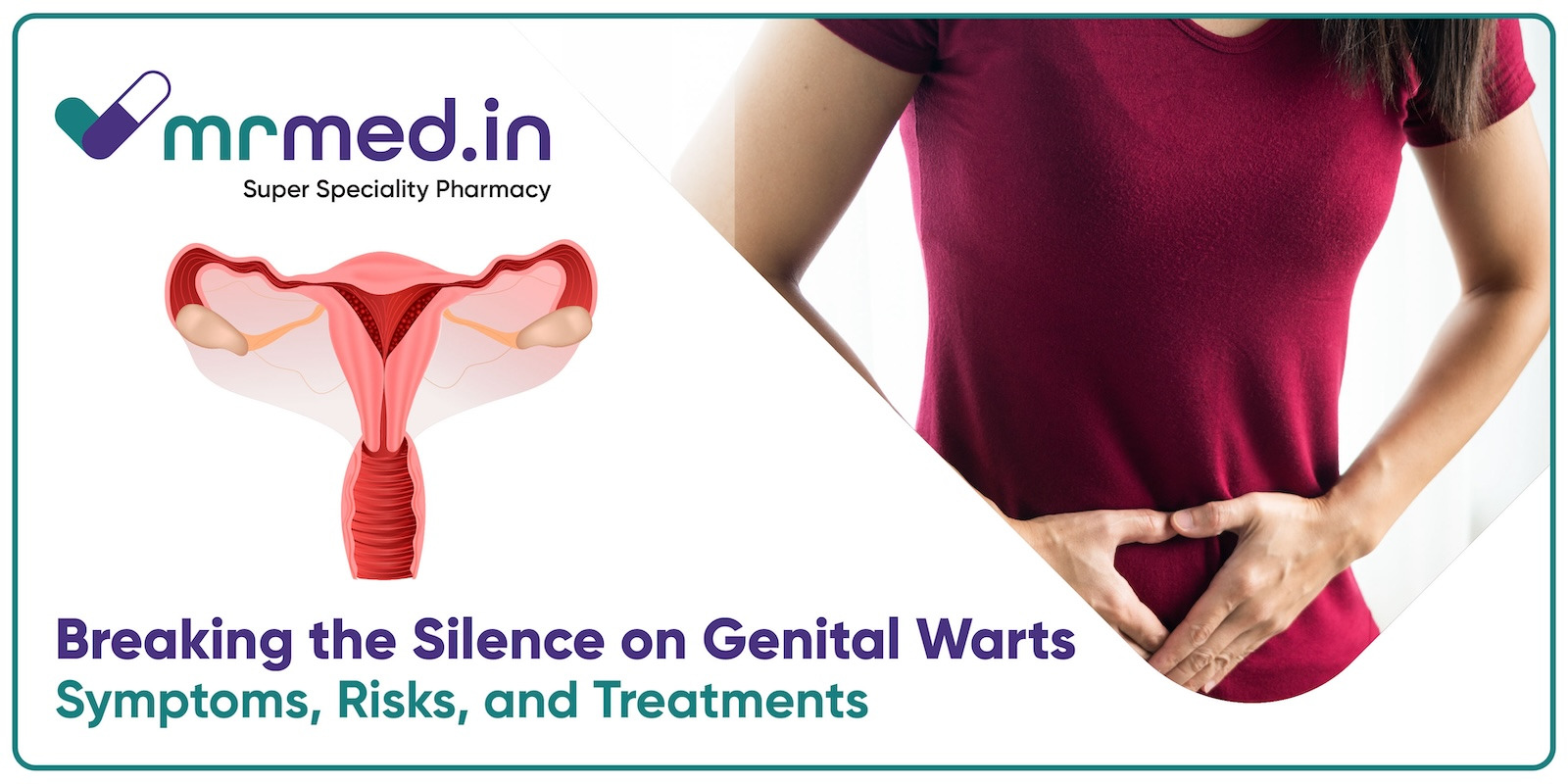Receiving a diagnosis of genital warts can be unsettling, but it's important to address this common condition openly and without embarrassment. Genital warts are more prevalent than you might think. Understanding what they are, recognising their symptoms, and knowing your treatment options can empower you to manage your health effectively. Let’s explore everything you need to know about genital warts.
What Are Genital Warts?
These are small growths that may appear on the genital and anal areas. It is caused by specific strains of HPV, a sexually transmitted infection (STI). While many people with HPV never develop warts, the virus can still spread through sexual contact. It’s crucial to differentiate genital warts from other types of warts, as different strains of HPV cause them and have distinct characteristics.
What Are the Symptoms of Genital Warts?
Identifying genital warts early can help with prompt treatment. Here’s what to look for:
- Small, Bumpy Growths: These warts often appear as small, flesh-coloured bumps or clusters that can resemble cauliflower.
- Itching or Discomfort: You might experience itching, burning, or discomfort in the affected areas.
- Bleeding: Warts can sometimes bleed, especially if they become irritated or scratched.
Not all symptoms are obvious, so it’s important to be vigilant about any changes in your genital area and consult a healthcare provider if you notice anything unusual.
How Are Genital Warts Diagnosed?
Diagnosing genital warts involves a few steps and careful evaluation by a healthcare provider, who typically conducts both a physical examination and additional diagnostic tests if necessary. The process is straightforward, but it’s crucial for ensuring proper identification and treatment of the warts.
- Physical Exam: Your physician will conduct a thorough examination of the genital and anal regions to identify any visible warts or abnormal growths.
- Vinegar (Acetic Acid) Application: To detect less obvious warts, a mild acetic acid solution may be applied to the skin, which can help highlight warts by turning them white.
- Biopsy Procedure: If the diagnosis is unclear or another condition is suspected, a small piece of tissue may be removed from the wart and sent for laboratory analysis.
- HPV Testing and Pap Smear: Women may undergo an HPV test or Pap smear to screen for high-risk HPV types, which are generally associated with cervical abnormalities and cancer.
- Colposcopy: A specialised examination using a colposcope to magnify and closely inspect the cervix, vagina, or vulva for internal warts or unusual cell changes.
What Are the Risks of Genital Warts?
While genital warts are generally not life-threatening, they come with several risks:
- Cancer Risk: Some HPV strains that cause genital warts are linked to cervical, anal, and throat cancers. Monitoring and treating warts can help mitigate this risk.
- Emotional Impact: The presence of genital warts can affect self-esteem and emotional well-being. Seeking treatment and support can help alleviate these concerns.
- Transmission to Partners: Genital warts are contagious, which means there is a risk of spreading HPV to sexual partners. Effective treatment and preventive measures are crucial for managing this risk.
What Is The Usual Treatment For Genital Warts?
Few of the treatmet options are:
- Topical Treatments: Medications applied directly to the warts can help destroy the wart tissue or boost the immune response to fight the virus. These treatments are often prescribed by doctors.
- Cryotherapy: This method includes freezing the warts with liquid nitrogen. The freezing process causes the warts to fall off over time, and it may require multiple sessions.
- Electrocautery: Using electrical current, this technique burns off the warts. It may involve local anaesthesia to minimise discomfort.
- Laser Therapy: It can be effective for larger or persistent warts. This method uses focused light to destroy the wart tissue.
- Surgical Removal: In cases where other treatments are not effective, surgical removal of the warts may be necessary.
Additionally, maintaining good skin hygiene and protecting your skin can help prevent further irritation. One option is using a skin protectant to soothe the affected area and help manage symptoms like itching or discomfort. For instance, Glizigen Spray is a topical treatment that some healthcare providers may recommend for additional protection and relief.
How Can You Prevent Genital Warts?
Preventive measures are key to avoiding genital warts and reducing the risk of HPV transmission:
- Vaccination: The HPV vaccine is highly effective in the prevention of the types of HPV that cause genital warts and certain cancers. It is recommended for preteens and young adults but can be beneficial for older individuals as well.
- Consistent Use of Condoms: While condoms do not completely eliminate the risk of HPV, they can significantly reduce the chance of transmission.
- Regular Screenings: If you have a history of genital warts, regular screenings (like Pap smears for women) are important for monitoring any changes and addressing potential issues early.
Ending Note
Genital warts can be an unsettling diagnosis, but understanding them fully and seeking appropriate treatment can help you manage your health with confidence. With various treatment options available and preventive measures you can take, addressing genital warts is achievable. Don’t let embarrassment hold you back from seeking the help you need; your health is paramount, and support is readily available.




